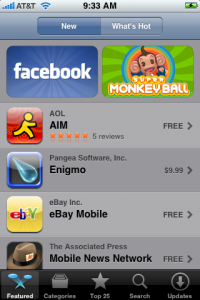Believe it or not, there was a time when I didn’t like pizza. Actually, I’d never tasted it, but I was a kid and thought it looked yucky and melty and I was sure I wouldn’t like it, so I refused to eat it.
What a maroon.
My parents and sisters thought I was nuts. I was a kid and kids love pizza. My sisters loved pizza, my parents loved pizza, what was up with me?
One day, my father said, “Just take one bite. If you don’t like it, you never have to eat it again.”
And. . . the rest is history.
Note that my father didn’t try to convince me to become a pizza eater. He merely encouraged me to try it. He knew that if I did, there was a very good chance I’d like it.
Thanks, Dad.
In marketing, it’s called “promoting trial” or “sampling”. It’s a proven strategy, something everyone who sells something should consider.
When you go car shopping, the sales person promotes a test drive. He knows that once you feel how smoothly the car navigates the road, and see how good you look sitting behind the wheel, you’ll sell yourself on buying that car.
Many lawyers offer free consultations for the same reason.
They give prospective clients a sample.
Prospective clients hear them opine about their case or situation, get some questions answered, and get a sense of what it would be like to work with them. If you offer free consultations, you know that most prospective clients who avail themselves want to hire you.
Content marketing is another form of sampling. When prospective clients or referral sources read something you write or hear you speak, they get a taste of your wisdom and personality, and this is often enough to get them to take the next step.
Not every lawyer should offer free consultations, but every lawyer should create and distribute content.
Write something, record something, get yourself interviewed by others in your niche, and let prospective clients and the people who can refer them get a sample of your greatness.
You may not be as delicious as that first piece of pizza I had, but you’ll probably be tasty enough to get people interested in taking another bite.








